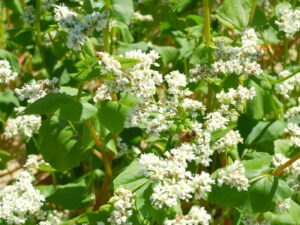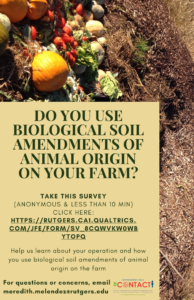Conservation programs with USDA have received unprecedented increases in funding and farmers should investigate programs to make improvements on their farm. One program in particular, is increasing the minimum annual payments to producers for the Conservation Stewardship Program (CSP) from $1,500 to $4,000 in fiscal year 2024. The increase addresses challenges faced by small farms making participation more financially beneficial for smaller operations. The new minimum payment is available for new and renewed CSP contracts.
CSP offers technical and financial assistance to help agricultural and forest producers take their conservation efforts to the next level. The program is designed to compensate agricultural and forest producers who agree to increase their level of conservation by adopting additional conservation activities and maintaining their baseline level of conservation.
Examples of CSP enhancements that are suitable for being adopted by smaller scale and urban producers include:
producers include:
- Planting multi-species cover crops
- Mulching with natural materials
- Establishing pollinator habitats
- Soil health crop rotation
Currently, an unprecedented amount of funding is available for CSP through the Inflation Reduction Act and Farm Bill. The Inflation Reduction Act provided $19.5 billion in additional funding for NRCS oversubscribed programs like CSP for five years. Inflation Reduction Act funds are available to help producers adopt climate-smart practices.
NRCS recently announced it increased the number of Climate-Smart Agricultural and Forestry Mitigation Activities eligible for Inflation Reduction Act funding for fiscal year 2024 through CSP, the Environmental Quality Incentives Program (EQIP), and the Regional Conservation Partnership Program (RCPP). To learn more, download the list of practices and a fact sheet.
NRCS accepts producer applications for its conservation programs year-round, but producers interested in this cycle of Inflation Reduction Act funding should apply as soon as possible. Producers interested in EQIP should apply by DATE or CSP should apply by DATE for consideration this year. Funding is provided through a competitive process and will include an opportunity to address the unmet demand from producers who have previously sought funding for climate-smart conservation activities.
For more information about assistance available, contact NRCS at your local USDA Service Center.

